Hurricane Idalia strengthened over the Gulf of Mexico on Tuesday on its relentless crawl toward Florida's Gulf Coast, forcing evacuations in low-lying coastal areas that are expected to be swamped when the powerful storm hits on Wednesday.
The storm was carrying maximum sustained winds of 150kmph by early Tuesday afternoon, but its intensity will ratchet higher before slamming ashore in the early hours of Wednesday, according to the Miami-based National Hurricane Center (NHC).
By that time, it was forecast to reach Category 3 strength - classified as a major hurricane, with maximum sustained winds of at least 179kmph - on the five-step Saffir-Simpson wind scale.
Idalia's most dangerous feature, however, appeared to be the powerful surge of water it is expected to deliver along the coast.
Florida Governor Ron DeSantis urged residents in low-lying areas to heed orders to seek higher ground, warning that the storm surge could cause life-threatening floods.
"The time is running out very, very rapidly," he said at an afternoon news briefing.
Mary Wolcott Martino, 79, an editor and travel writer in St. Petersburg, was packing up as fast as she could on Tuesday afternoon, grabbing items that cannot be replaced such as hard drives containing family photos.
"We're leaving in five minutes, headed out the door now," she said.
She and her husband did not board up their home as they did ahead of last September's Hurricane Ian, saying they are more concerned about flooding than high winds this time.
"We're on the canal and just 9 feet above sea level," she said.
The NHC said Idalia's center would likely hit Florida's coastline somewhere in the Big Bend region, where the state's northern panhandle curves around into the Gulf side of the Florida Peninsula. The area, roughly between the inland cities of Tallahassee and Gainesville, is much more lightly populated than the Tampa-St. Petersburg area to the south.
Most of Florida's 21 million residents, along with many in Georgia and South Carolina, were under hurricane, tropical storm and storm surge warnings and advisories.
Idalia transitioned from a tropical storm to a hurricane early on Tuesday, a day after passing west of Cuba, where it damaged homes and flooded villages.
By early Tuesday afternoon, the storm was churning about 390 km southwest of Tampa as it crept northward at 24kmph.
Idalia is in line to become the fourth major hurricane to strike Florida over the past seven years, following Irma in 2017, Michael in 2018 and Ian, which peaked at Category 5, last September.
In Sarasota - a city hard-hit by Ian last year - Milton Bontrager's home is boarded up and stocked with food, water and a generator.
"I don't panic, I prepare," said Bontrager, 40, who runs six sport and charter fishing boats in Venice along the Gulf Coast near Tampa.
He stopped taking customers out days ago so he could secure the boats. His biggest craft is tied down to a floating dock with 16 lines and equipped with battery-powered pumps that turn on automatically if the boat starts taking on water.
Florida's Gulf Coast along with southeastern Georgia and eastern portions of North and South Carolina could face torrential rains of 10 to 20cm through Thursday, with isolated areas seeing as much as 30cm, the hurricane center warned.
Surge warnings were posted for hundreds of miles of shoreline, from Sarasota to the sport fishing haven of Indian Pass at the western end of Apalachicola Bay. In some areas, the surge of water could rise 3 to 4.6m, the hurricane center said.
"The No. 1 killer in all of these storms is water," Deanne Criswell, the Federal Emergency Management Agency's administrator, said on CNN.
More than 40 school districts across the region canceled classes, DeSantis said. Tampa International Airport planned to suspend commercial operations beginning at midday Tuesday.
Some 5,500 National Guard troops were mobilized and between 30,000 and 40,000 electricity workers were standing by to help restore power after the hurricane passes. The state has set aside 1.1 million gallons of gasoline to address any interruptions to fuel supplies, DeSantis said.
As Floridians were preparing for Idalia's arrival, Cubans were grappling with the aftermath of the storm, which lingered for hours on Monday near the western end of the Caribbean island nation, toppling trees and flooding coastal villages.
By Monday afternoon, brown floodwaters had swamped the small fishing village of Guan, an hour's drive south of Havana.
Decades-old buses missing floorboards and windows carried women and children to higher ground as winds howled, rattling tin roofs and slamming fishing boats tucked in the mangroves.
In Pinar del Rio, an area known for producing the tobacco used to make some of the world's finest cigars, 60% of the province was without power.
Authorities evacuated tens of thousands of people from that province as well as neighboring Artemisa, while squalls of heavy rain doused the Cuban capital of Havana.
International / US/Latin America
Hurricane Idalia churns toward Florida, threatening dangerous storm surge
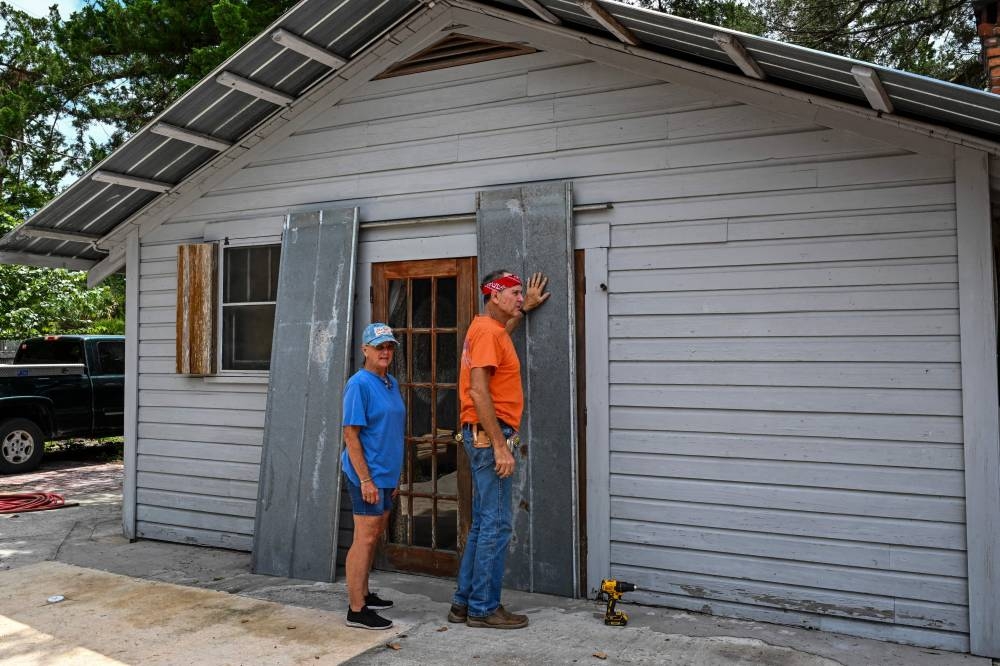
Renda Doherty (L) with her husband William Doherty board their house in preparation for Hurricane Idalia, in Steinhatchee, Florida. AFP
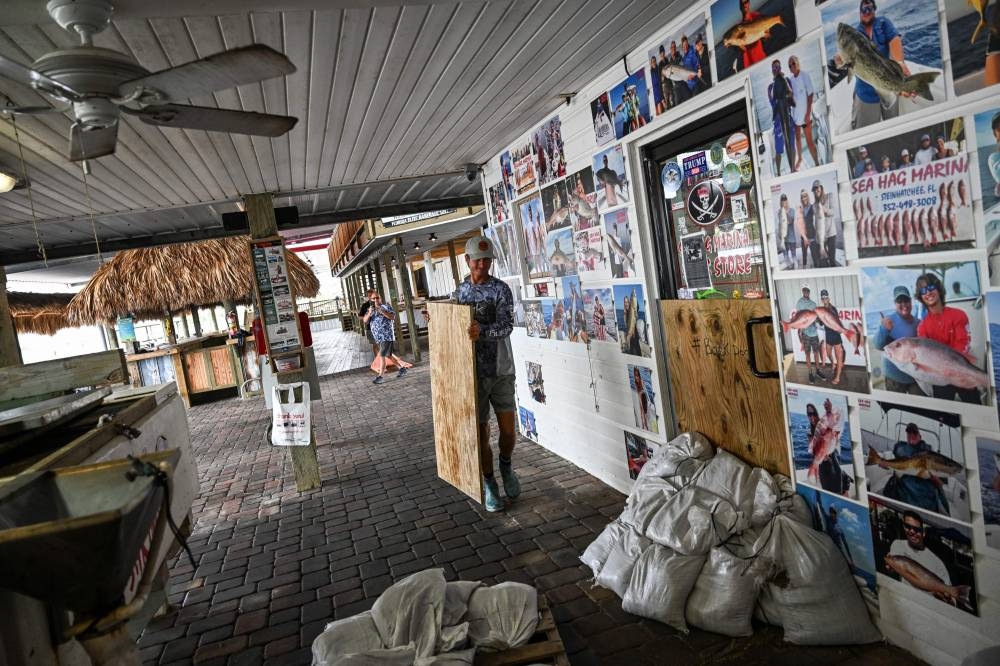
People board up their shop at a marina in Steinhatchee, Florida as preparations are made ahead of Hurricane Idalia. AFP
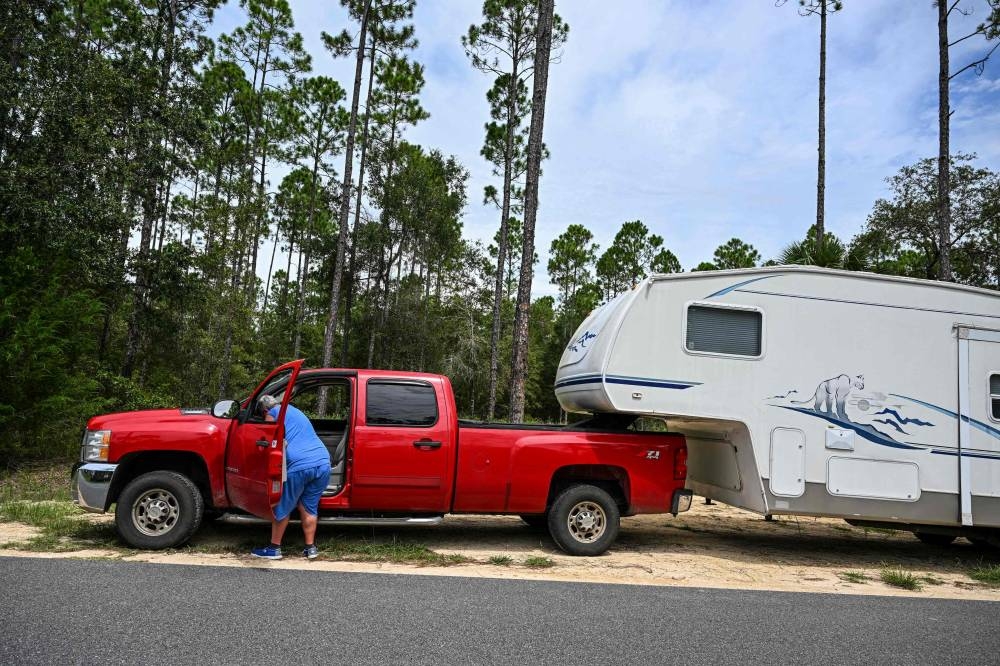
A man loads his motor home at the back of a car in Steinhatchee, Florida as preparations are made ahead of Hurricane Idalia. AFP
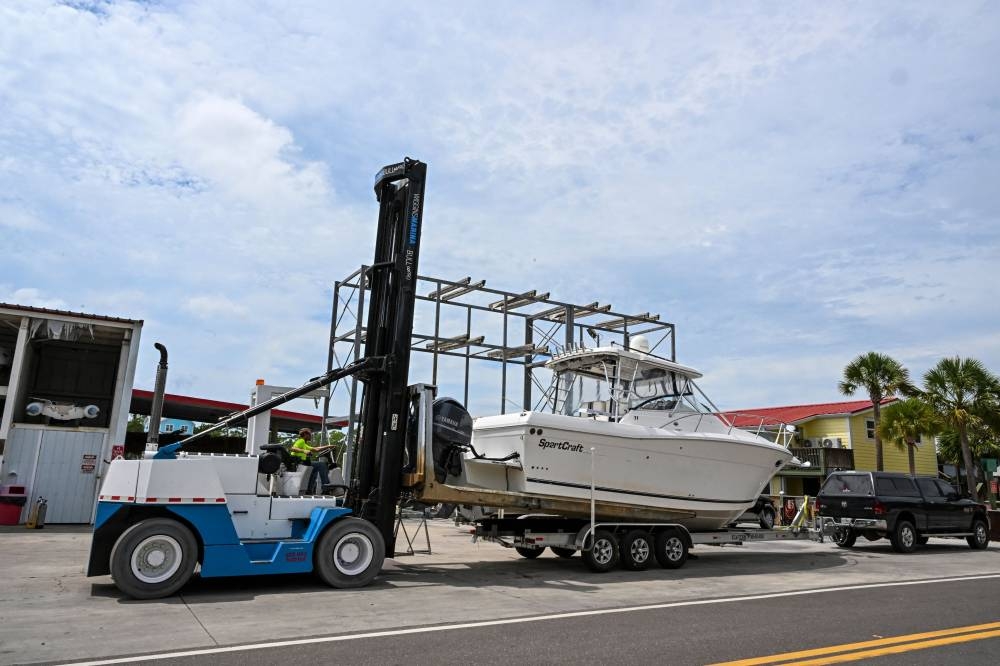
A man loads a boat at the back of a car from a marina in Steinhatchee, Florida as preparations are made ahead of Hurricane Idalia. AFP
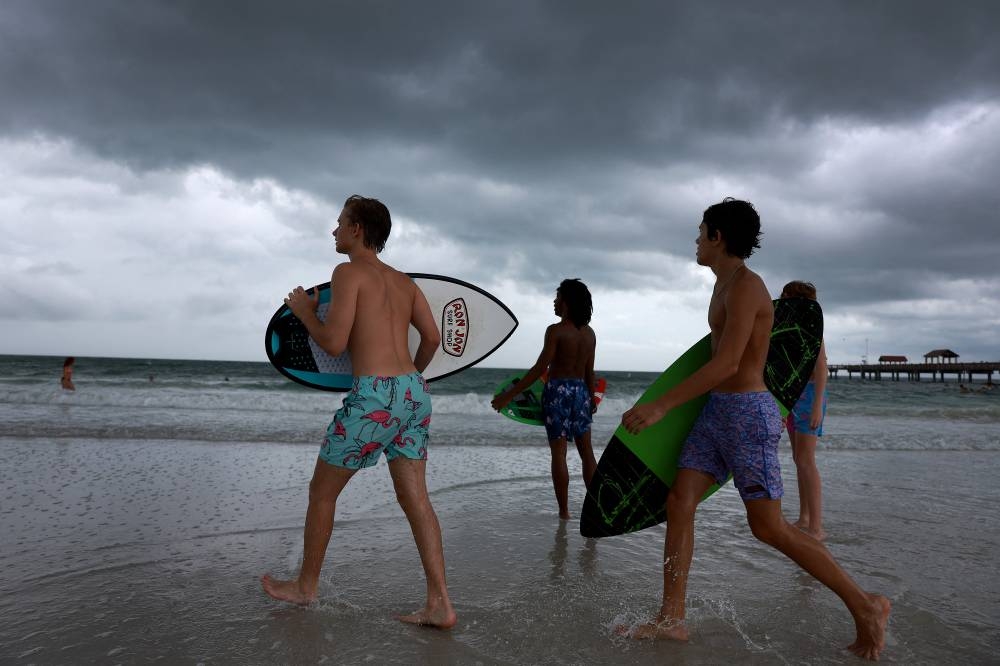
Storm clouds hang over people as they enjoy the beach before the possible arrival of Hurricane Idalia on August 29, 2023 in Clearwater Beach, Florida. AFP
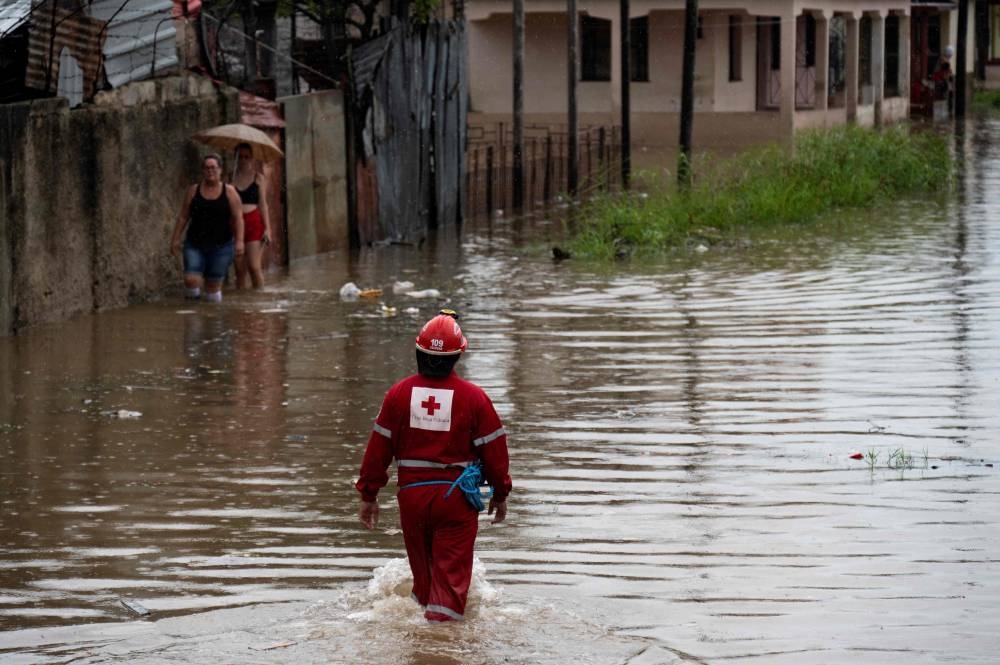
A member of the Cuban Red Cross works on a flooded street in Batabano, Mayabeque province, Cuba, during the passage of tropical storm Idalia. AFP
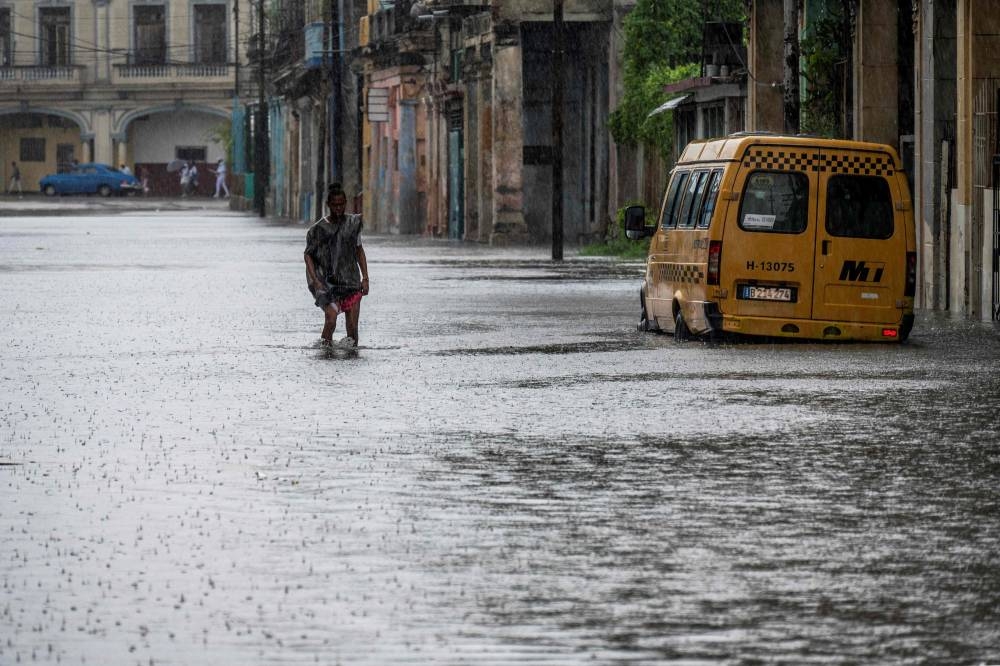
A man walks through a flooded street in Havana during the passage of tropical storm Idalia. AFP
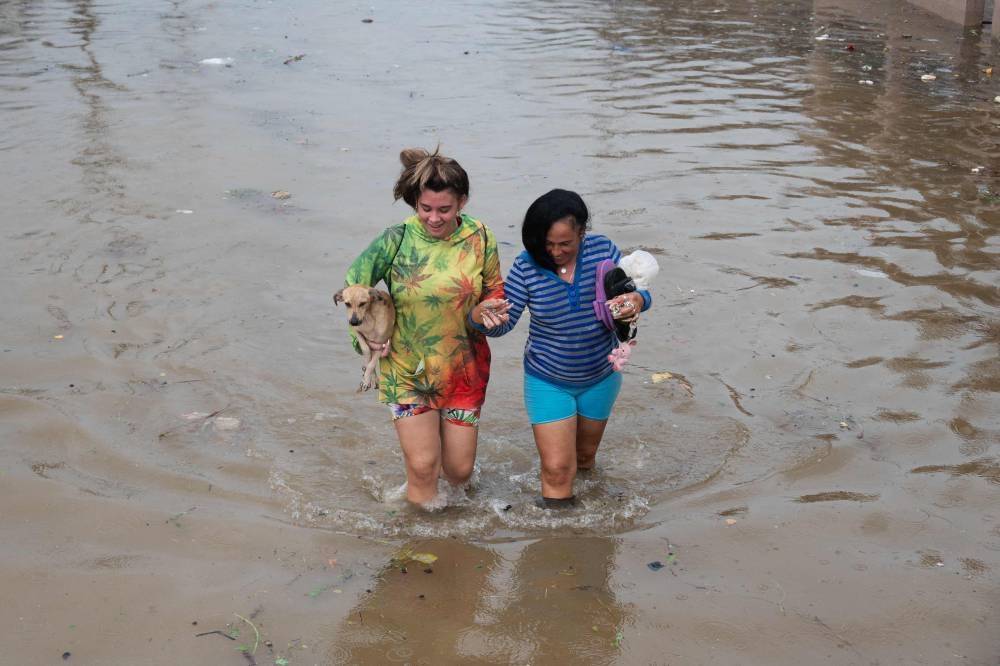
People walk through a flooded street in Batabano, Mayabeque province, Cuba during the passage of tropical storm Idalia. AFP
